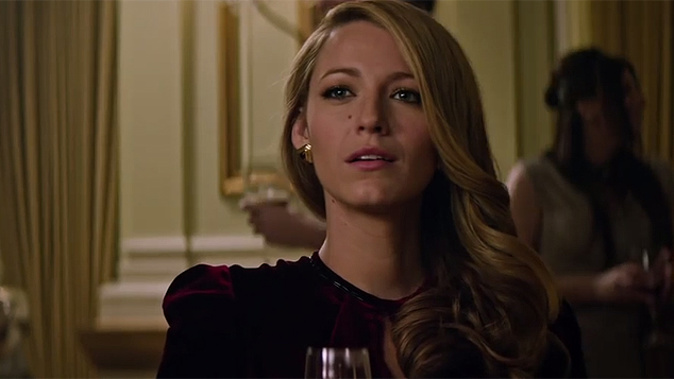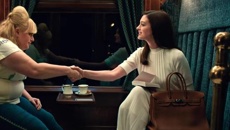
Director: Lee Toland Krieger
Starring: Blake Lively, Harrison Ford, Michael Huissman, Ellen Burstyn
2/5
Adaline Bowman (played by Blake Lively of Gossip Girl fame) is a lucky girl: incredibly beautiful and possessed of the undeniable advantage of never getting a day older. She is immortal, preserved in the prime of her youth. But rather than spend her limitless time wisely, she falls into a kind of awful vanity – chasing men who she will always outlast.
Guided by an intrusive and condescending voiceover, the invented physiology of Adaline’s condition is explained: Car accident. Hypothermia. Lightning strike. Rather than perish in dull ditchwater, she instead drinks from the fountain of youth.
Once chased by shadowy agents in trenchcoats during the 1950s, Adaline lives in a kind of hermit otherworld of nostalgia. Kept company by an adorable dog, draped in the finery of decades gone by, and inhabiting a sprawling Art Deco apartment in San Francisco, the only plus-side of living forever seems to be a devotion to understated materialism.
In fact, Lively’s lavish costumes are the unacknowledged selling-points of the film. Look at a beautiful woman prancing about in flowing skirts and plunging ball gowns! But even then, director Lee Toland Krieger and cinematographer David Lanzenberg (who shot the disaster that was The Signal) together cannot conjure any image which either impresses or startles.
Adaline’s principle problem seems to be men. She can’t keep them for obvious reasons. One imagines she’s mastered the art of the one-night stand. That seems to be the case when she first meets Ellis Jones (Michiel Huisman in a constantly ill-fitting suit). She turns him down straight, before indulging in some kind of frolic on his over-sized couch and then in his over-sized bed.
Our title character dallies and tarries and deliberates, and by virtue of the quintessential Hollywood formula, falls head-over-hells for the bearded philanthropist. This is no spoiler – this film prides itself on being as obvious and expositionary as possible. By the time Harrison Ford appears as Ellis’ kindly father, the thinly-veiled conceit is plain to see.
Tasked with digitising an old film archive at the library where she works, Adaline stares pensively through the newsreels of history. This is the closest the film ever gets to engaging with world events. Instead of her lengthy and undying experience shaping her outlook, Adaline looks at the past with nothing more than vague annoyance at having to pack up and move so often to protect her identity.
Adaline’s relationship with her daughter (played by Cate Richardson in youth and Ellen Burstyn in old age) is the film’s sole glimpse of salvation in an otherwise overbearing sea of pomposity and pith. Their interactions are tinged with a genuine air of sadness and tragedy, finally hinting at what ought to have been the project’s central premise: What happens in the mind of the immortal when everything once loved eventually disappears?
Rather than attack this messy and interesting question, the screenplay avoids anything which does not fit the narrow mould of the average box-office romance tale. This turns out to be The Age of Adaline’s main deficiency: far too much sickly pashing, and not nearly enough heartfelt consideration.
The Age of Adaline is in cinemas now.
Take your Radio, Podcasts and Music with you








